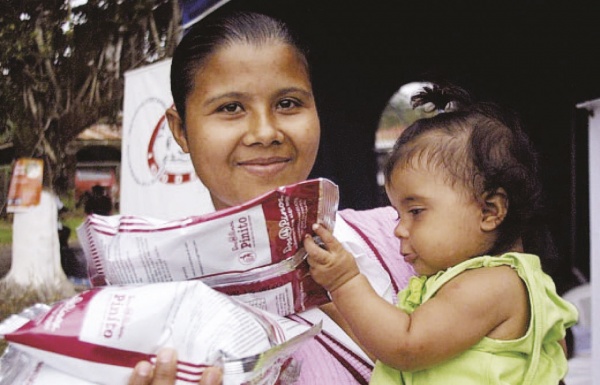Cencinai: Education Centers, Nutrition and Holistic Care
This national program aims to improve the nutrition of participating mothers and children and enhance children's potential for development as a means of lifting them out of poverty and vulnerability. The program offers assistance in the areas of nutrition, childcare, and child protection services, and promotes the growth and development of children up to age 13. Its activities have been designed to support working mothers.
Meets the criteria established under Health in All Policies:
- Although it does not have a great political commitment from from the executive branch , since 1970, the government of Costa Rica has enacted several laws to strengthen the program's operations and financing, creating in 1977 the Centers for Children's Nutrition and Comprehensive Care (CINAI).
- Separate structure. Under Law No. 8809 (2010), the National Office for Education and Nutrition, which has regional and local offices, is responsible for implementing this program.
- Participation of other sectors. The Ministry of Education is responsible for designing the centers' integrated programs. CEN-CENAI collaborating agencies include: the Joint Institute for Social Assistance (IMAS); the National Office for Community Development; Community Development and Welfare Association; the National Kindergarten Board; municipal governments; the Social Security Department, the National Institute for Women; the Costa Rican Institute of Sports and Recreation; the National Learning Institute; the National Institute on Alcoholism and Drug Abuse; and the National Network on Domestic Violence.
- Separate budget. The program is financed through national budget allocations in thehealth category. The Fund for Social Development and Assignments (FODESAF), which reports to the Ministry of Labor and Social Security, also supports the initiative.
- Focuses on reducing inequity. The program seeks to reduce inequity by serving pregnant and nursing mothers and at-risk children to foster social assimilation and set them on a path towards becoming healthy, contributing citizens.
- Intersectoral action. The health and education sectors are actively involved in the centers, along with other relevant agencies. The centers curriculum is enriched by activities sponsored by other ministries, including the " Bibliobus " and "Grow with music" programs and awareness-raising campaigns such as "Teaching without hitting ".
- The program contributes to public policies that impact health and the institutions of the health sector. A 1951 Executive Order created a Nutrition Department under the Ministry of Health. Since then, the Legislative Assembly has enacted two laws relevant to the program: Law No. 5662 – Social Fund for Development and Family Allowances (1974) and Law No. 8809 (2010), which converted the program into an office under the Ministry of Health and granted it operational autonomy.
- There is scientific evidence of the program's results. The program is evaluated through internal evaluations by the Ministry of Health, and the Ministry of Labor and Comptroller General of the Republic conduct external evaluations and audits in CENCINAI (completion of planned activities, impact on coverage levels, and improvements in child health and bio- psychosocial development). While the results of these audits are currently being reviewed, it is worth noting that by the end of 2011, the program was operating 624 centers and serving 125,030 beneficiaries.
- Social participation. Communities hold assemblies to form local Community Development and Welfare Associations (ADEC) to support CEN-CINAI's centers. These community representatives are involved in program implementation. In some communities, government institutions networks have been set up to coordinate joint efforts to meet the needs of the local population.
